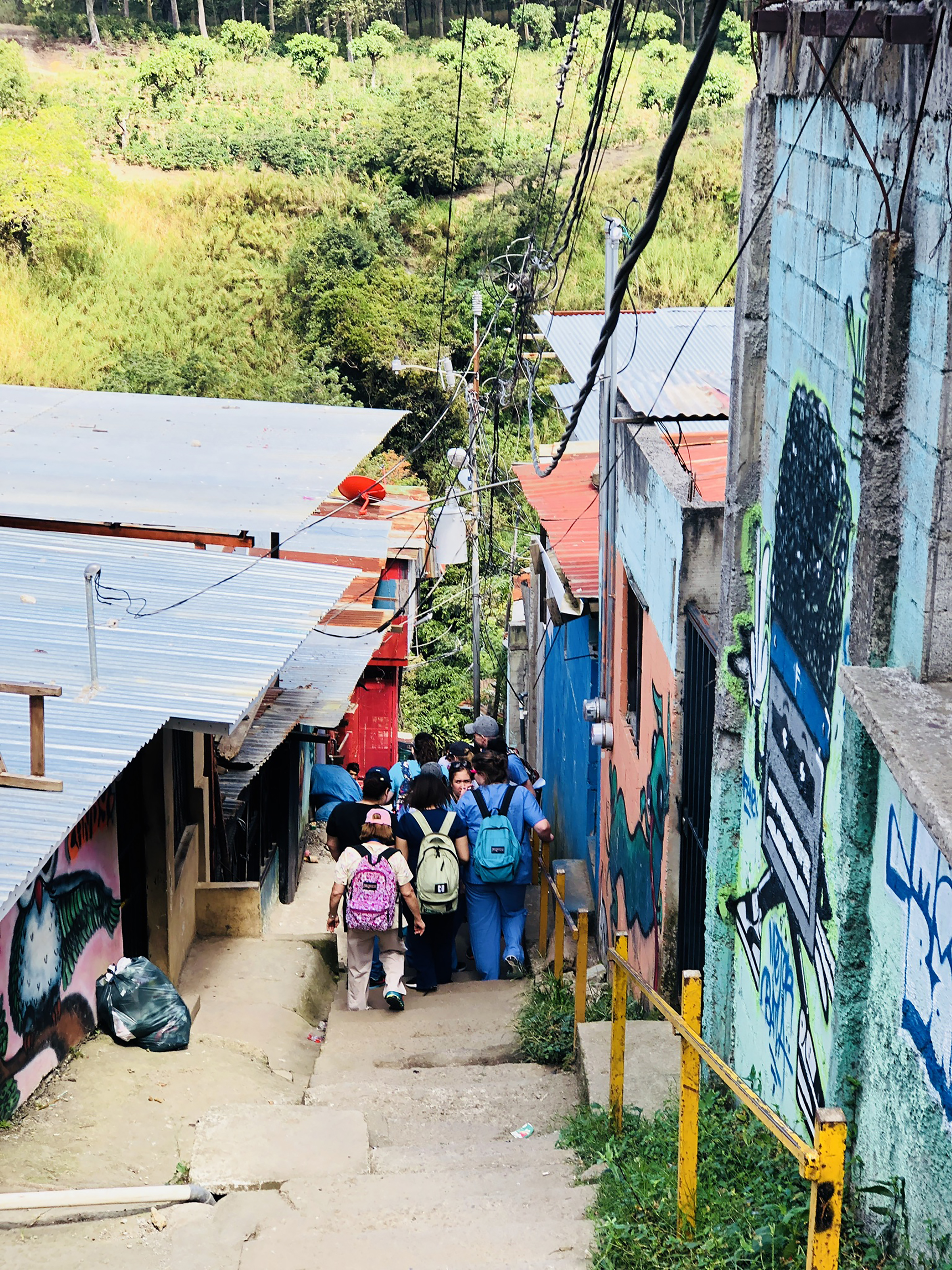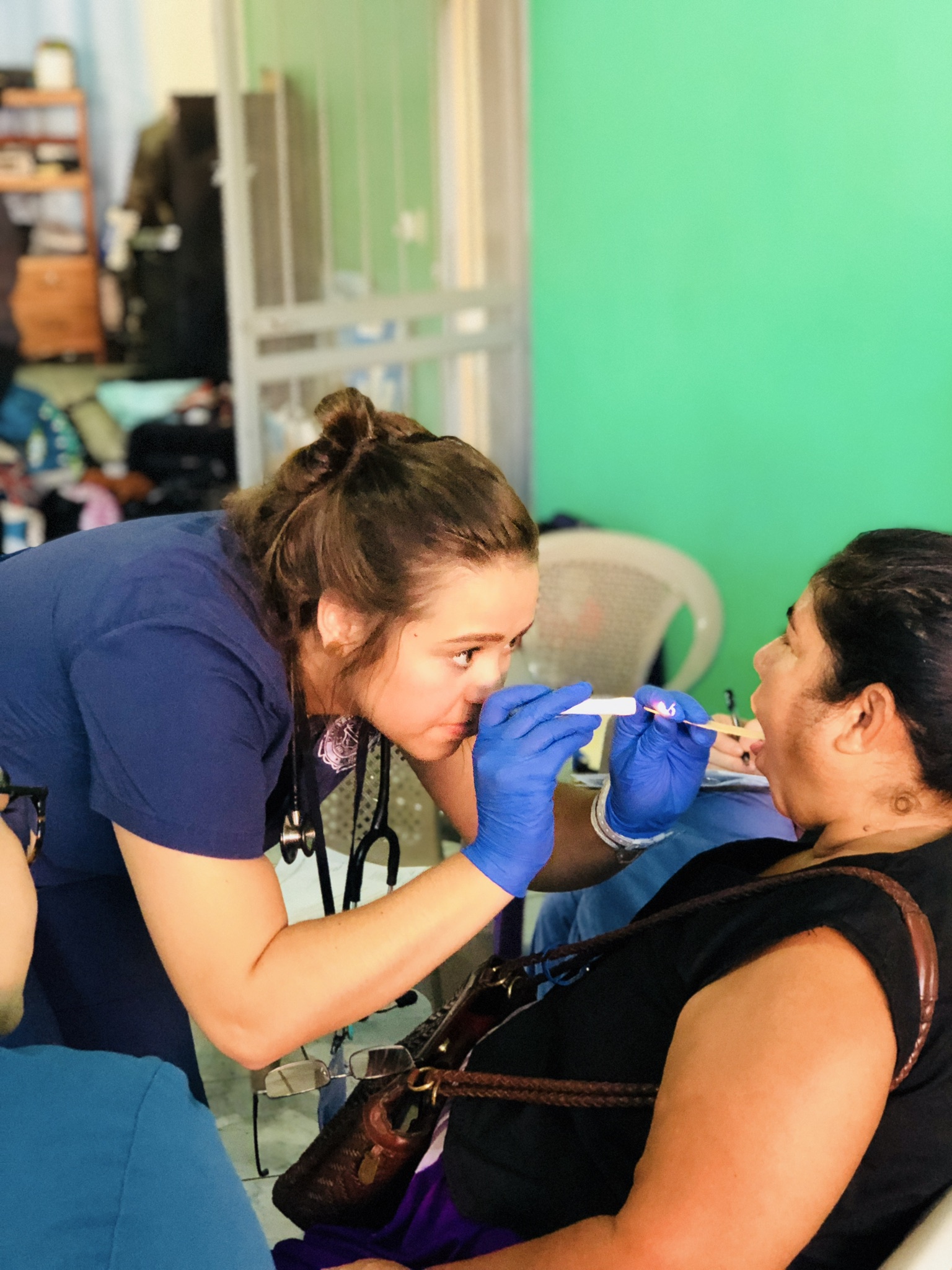Student Nurses Provide Medical Care in Costa Rica

Student nurses from Henry Ford College, Washtenaw Community College and South University traveled to Costa Rica to assist residents in disadvantaged areas and gain experience in medical care. Professor Catherine Gangarossa of the HFC nursing faculty shares what she and the students brought back from their journey.
Johnson: Working abroad is an incredible experience to see the world through a different perspective. Do you have any advice for a student who’s working abroad for the first time?
Gangarossa: Working in other countries to serve the underserved is a humbling experience. Advice for students traveling would be to sign up with an organization that already works the area you are traveling. Structure is very important, as is safety. We work with an organization called ISL-International Service Learning, which has been leading groups of volunteers to several different countries for more than 22 years. ISL brings us to areas/communities where we can provide community and medical services. It is designed for students. In our case, we work with physicians, other nurses and pharmacists, and the student can “fine-tune” their skills and learn new ones.
J: What were the daily tasks while participating in the medical workforce of Costa Rica?
G: Our first day was an orientation to the various diseases/infections/illnesses we may encounter. We also learned a little Spanish to help us with our assessments (we had interpreters with us). Our second day consisted of going to a community, and we went door to door or hut to hut and assessed living conditions, and asked if anyone in the home was ill. We also informed them we were having a free clinic in the afternoon and the next day. We did this in two different communities. We also had the opportunity to have a playdate one afternoon with children from one of the communities, where we gave away dresses that were donated and made by the “Angels of Mercy” of Rochester, New York, and tons of toys.
Our clinics consisted of a triage where we asked questions and completed a physical exam. We then presented our case to the physician. The physicians would then “teach” the student nurse about certain aspects of their exam. We also had the opportunity to work with the pharmacist to see how that operates.
J: While working in Costa Rica, were there any noticeable differences in the country’s medical facilities from what you’ve seen in the United States as far as medical supplies, organization of staff and the treatment of patients?
G: We didn’t’ have the opportunity to visit a medical facility because we worked in underserved areas. Medical supplies, for the most part, are donated by the volunteers. The degree of disparity in a small geographical area was shocking. Our clinics provided the utmost respect and privacy possible. This is an ISL guideline.
J: Were there any similarities in the Costa Rican medical personnel that reminded you of the medical workforce in the United States?
G: Education is different in Costa Rica for medicine and nurses. We had the opportunity to hear from one nurse, but he was rather new and couldn’t offer real life experiences. We also had a person come talk to us about natural healing. The many plants in Costa Rica offer much in the way of healing and Costa Ricans practice in this regularly.
J: Were there any students that you know of that would be interested in coming back to offer their help again in a mission like this?
G: Our first trip was to Belize in 2016 and we visited Costa Rica in 2017. We initially had nine volunteers — one former grad and current RN, one faculty, and seven students, three of whom graduated days before we left for Belize. For our trip to Costa Rica, we had 17 volunteers — one faculty, one RN, six students who just graduated, four third-semester students and four second-semester students, and one from another school.
We are planning a return trip to Belize in December 2018 and a trip to Panama in June 2019. We know the interest is there for students to travel. It is expensive and requires a lot of fundraising. We are also exploring the chance of starting a course as an independent study in health and human services so that students can earn credit for travel. Details are yet to be determined. We want to open it up to students in more professions than just nursing — pre-pharmacy, pre-physical therapy, pre-med.

